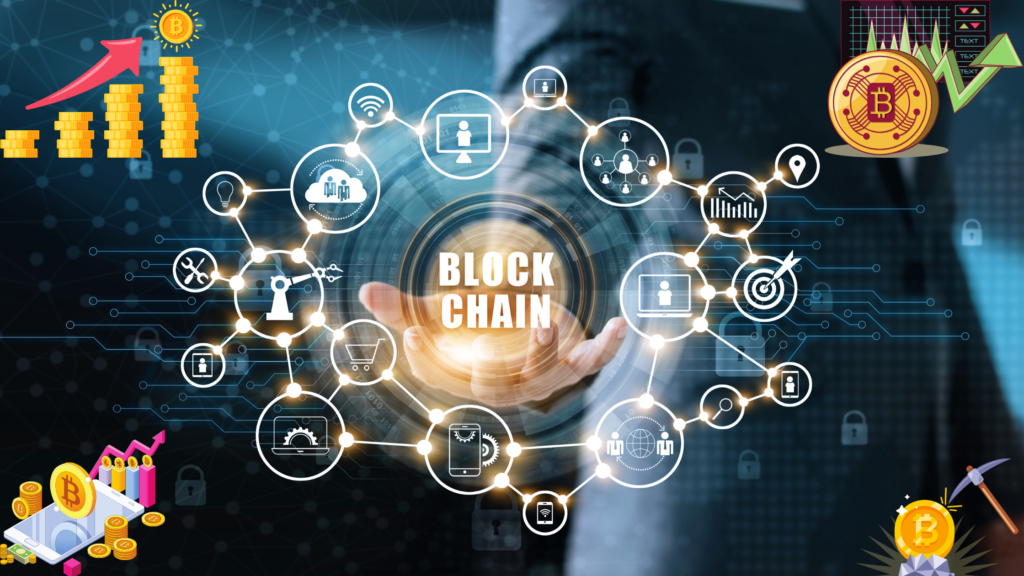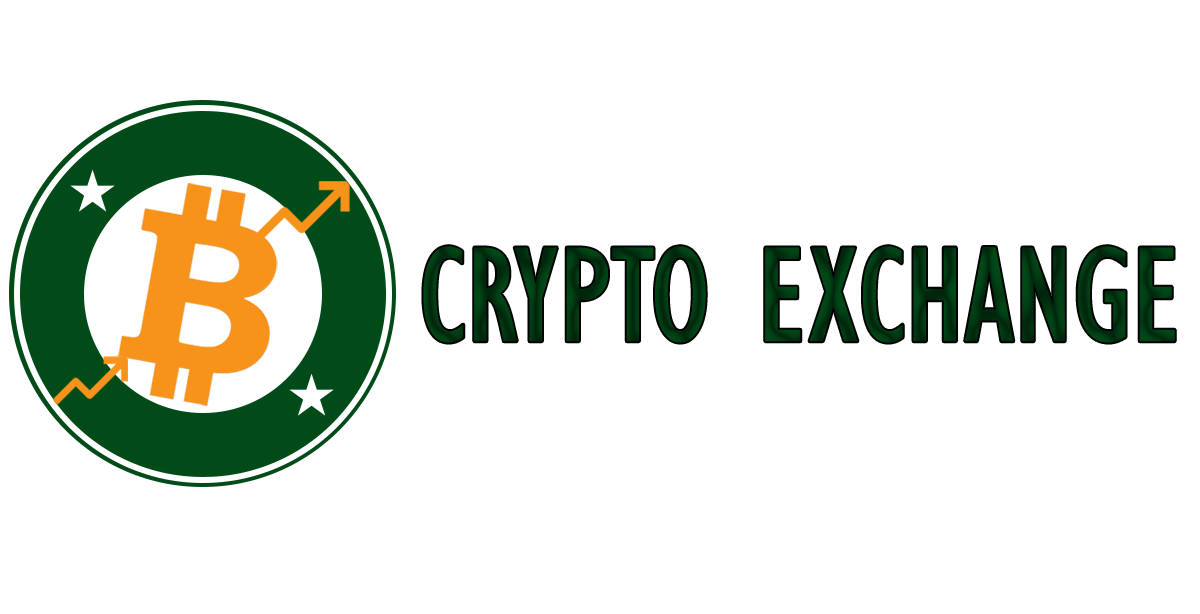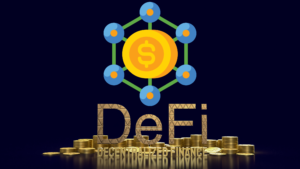Learn all about blockchain, the technology that’s transforming industries, ensuring transparency, and securing transactions. Find out how it works, its benefits, and why it’s a game-changer for our future.
Table of Contents
Blockchain. You’ve probably heard the word thrown around in conversations about Bitcoin or cryptocurrency. But, let me tell you—it’s so much more than that. I remember the first time I heard about blockchain, and I was honestly confused. It sounded like a buzzword that didn’t mean much. But once I started digging deeper, I realized how revolutionary this technology actually is. And trust me, after reading this, you’ll get it too.
What is Blockchain, Really?
So, let’s break it down simply. Blockchain is basically a type of digital ledger—think of it like an accountant’s book but much cooler, faster, and, well, unhackable. At its core, it’s a decentralized technology that records transactions across many computers in such a way that the recorded transactions can’t be altered. No single entity owns the blockchain, and that’s the part that blew my mind. Imagine a world where no one person or company controls the system—everything is visible, yet secure.
- Decentralization: Instead of relying on a central authority (like a bank or government), blockchain is spread across multiple nodes (computers). This means no single point of failure, which is kinda awesome.
- Immutability: Once data is recorded in the blockchain, it can’t be changed without altering every block that comes after it. So, the chances of tampering are slim to none. It’s basically like writing something in stone.
- Transparency: Every transaction is visible to those who have access. It’s like airing out all your laundry but in a good way, because it fosters trust.
I remember being skeptical at first, thinking, “What if someone tries to cheat the system?” But the beauty of blockchain is that it’s designed to prevent this. The whole network would know if someone tampered with a block, and they’d reject it. It’s almost like the blockchain snitches on any bad actors. Pretty cool, right?
How Blockchains Work
Okay, so how do blockchains actually work? Imagine a group of people, all with the same notebook, and each time a new transaction happens, everyone writes it down. Once the notebook gets full, it’s locked away, and no one can change what’s in it. That’s essentially what happens with blockchain, except it’s digital.
Here’s the process:
- Transaction Happens: Say I want to send you some cryptocurrency. I submit the transaction, and it’s broadcast to the blockchain network.
- Validation by Nodes: Before it’s added to the chain, multiple computers (nodes) in the network check to make sure the transaction is legit. This process is called consensus.
- Transaction Is Added to a Block: Once the network agrees the transaction is valid, it’s added to a block along with other transactions.
- The Block Is Chained: That block is then linked to the previous block, forming a chain that grows longer with each new transaction.
At first, this process seemed pretty slow to me, but compared to traditional banking systems? It’s way faster and more efficient, especially for cross-border payments. One time, I tried wiring money overseas, and it took days. With blockchain, it’s a matter of minutes, sometimes even seconds.
How Blockchain is Transforming Industries
When I first heard about blockchain, I thought it was just for Bitcoin. Man, was I wrong. This technology is sweeping across industries like a tidal wave. From finance to healthcare, blockchain is shaking things up in ways I never thought possible.
- Finance: Of course, the most obvious use case is cryptocurrencies like Bitcoin or Ethereum. But here’s where it gets interesting—blockchain also enables things like faster international payments. You know how sending money abroad through a bank takes forever? With blockchain, it’s almost instant, and fees? Way lower.
- Supply Chain: This one blew my mind. Ever wonder where your coffee beans came from or if that diamond you’re eyeing is conflict-free? Blockchain allows every part of the supply chain to be tracked, from farm to table, or mine to showroom. Companies can ensure that products are ethically sourced.
- Healthcare: Imagine having all your medical records accessible anytime, anywhere, without worrying about them being altered or stolen. That’s what blockchain can do for healthcare—store patient data securely and only allow access to authorized individuals.
I’ll admit, when I first read about blockchain in the supply chain industry, I was a little skeptical. I mean, can one tech really be that versatile? But then I started reading about companies like Walmart and IBM using it to track food products and reduce contamination outbreaks, and I thought, Ok, this is real. Plus, the idea that we could one day completely eliminate shady practices, like child labor in the diamond industry, thanks to blockchain? That’s something worth paying attention to.
Is Blockchain Secure?
One of the first things people ask when they hear about blockchain is, “But is it safe?” Honestly, I get it—I had the same question. The answer is a solid yes. Blockchain’s security comes from a mix of cryptography, decentralization, and consensus mechanisms, which make it incredibly hard for hackers to mess with the data.
- Cryptographic Hashing: Each block contains a unique code called a cryptographic hash, which acts like a fingerprint. If anyone tries to alter a block, the hash changes, and the network rejects it.
- Decentralization as Security: Since the blockchain is distributed across multiple nodes, hacking just one computer won’t do the trick. You’d have to hack every computer on the network at the same time, which is virtually impossible.
- Consensus Mechanisms: Whether it’s Proof of Work (like in Bitcoin) or Proof of Stake (used in newer blockchains), the network requires agreement from multiple nodes before a transaction is added. No consensus, no transaction.
Still, no system is perfect. There have been cases of vulnerabilities, like the infamous 51% attack, where someone gains control of more than half the network. But those are rare, and blockchain is constantly evolving to address these issues.
Bitcoin vs. Blockchain
One thing that confused me early on was the difference between Bitcoin and blockchain. So, let’s clear that up. Bitcoin is a currency, while blockchain is the technology behind it. Bitcoin was the first use case of blockchain, but blockchain can do so much more than just power digital money.
- Bitcoin: A cryptocurrency that runs on blockchain. It’s decentralized, limited in supply (only 21 million will ever exist), and primarily used as a store of value or investment.
- Blockchain: The underlying technology that records and validates transactions. It’s the backbone not just of Bitcoin, but also of other cryptocurrencies, smart contracts, and countless applications across industries.
For a while, I thought Bitcoin and blockchain were the same thing, but now it’s clear: blockchain is the engine, and Bitcoin is just one of the many cars it powers.

The Benefits of Blockchain Technology
So, why all the hype? Why are companies, developers, and even governments jumping on the blockchain bandwagon? Well, I’m glad you asked because there are some huge benefits to this technology.
- Security: I mean, who doesn’t want more security? The decentralized and encrypted nature of blockchain makes it incredibly secure. I’ve heard stories of hackers trying to break into blockchain systems and failing miserably. The way blockchain records information makes it virtually impossible to change or hack without altering every single block, which is just not feasible.
- Efficiency: With blockchain, transactions are processed 24/7, not just during business hours like banks. Plus, there’s no need for intermediaries—no banks, no brokers—which cuts down on processing times and costs. It’s like cutting out the middleman in a business deal.
- Transparency and Trust: This one’s big, especially in industries where trust is everything. Blockchain ensures that everything is recorded and available for everyone involved to see. In a world full of shady deals and behind-the-scenes wheeling and dealing, blockchain is like the ultimate truth-teller.
I remember the first time I actually used blockchain technology, it was for a small Bitcoin transaction. I was nervous, not gonna lie. But the whole process was seamless, fast, and afterward, I could track every part of the transaction. It was like knowing that your package from Amazon wasn’t getting lost. After that, I was sold on the transparency aspect of it.
Challenges Blockchain Still Faces
Alright, before I make it sound like blockchain is the answer to every problem in the world, let’s talk about the hurdles. It’s not all rainbows and unicorns.
- Scalability: Right now, blockchain networks can get super slow if too many people try to use them at once. Bitcoin’s blockchain, for example, can only process about 7 transactions per second. Compare that to Visa, which can handle 24,000. We’re talking a huge difference.
- Energy Consumption: Have you heard about how much energy Bitcoin mining uses? It’s insane. In fact, some reports say that Bitcoin consumes more electricity than entire countries. Not exactly eco-friendly.
- Regulatory Issues: Governments are still trying to figure out how to regulate blockchain, and to be honest, I don’t blame them. This tech is so new, and it doesn’t fit neatly into any existing legal frameworks. So, until there’s some clear regulation, blockchain’s growth is a little uncertain.
I remember getting into a debate with a friend over the energy consumption thing. He was like, “How can you support something that’s killing the environment?” And honestly, I didn’t have a great answer at the time. But now, I’ve read about newer blockchain systems working on more energy-efficient methods, and that’s a good sign. Still, it’s a problem that needs solving if blockchain is going to be widely adopted.
The Future of Blockchain: What’s Next?
So, where is this all headed? Honestly, I think we’re just scratching the surface. Blockchain has the potential to revolutionize everything from voting to real estate, and I’m here for it.
- Decentralized Apps (dApps): These are apps that run on blockchain technology, and they’re already being used for things like finance, gaming, and even social media. Imagine a Facebook where you control all your data, and no one can just ban you. That’s the kind of future dApps promise.
- Smart Contracts: These are self-executing contracts with the terms of the agreement directly written into code. No need for a lawyer or a third-party mediator. You agree to something, the blockchain enforces it automatically. It’s that simple.
- Tokenization: This is where physical or digital assets are represented by tokens on a blockchain. Think of owning a fraction of a famous painting or a piece of real estate. The possibilities are endless.
I’ll admit, when I first heard about dApps, I thought, “Okay, this sounds like science fiction.” But after seeing projects actually start to take off, I’ve come to believe that blockchain-based apps could very well be the future. And smart contracts? That’s a game-changer for anyone tired of waiting for traditional contracts to clear (which, let’s face it, is all of us).
Conclusion
Blockchain isn’t just a buzzword. It’s a transformative technology that’s already changing industries and has the potential to reshape our world. Whether you’re excited about cryptocurrencies or intrigued by the transparency and security blockchain offers, there’s no denying its impact. And the best part? We’re only at the beginning of what’s possible. So, whether you’re a tech enthusiast or just someone who’s curious, I encourage you to dive deeper into blockchain and see where it could take you.
What are your thoughts on blockchain? Have you had any experiences using it? Let’s chat in the comments below!
If you’re looking to start trading Bitcoin, some reliable platforms include Coinbase, Binance, and Kraken. These platforms offer user-friendly interfaces and strong security measures to help you confidently navigate the crypto market.




